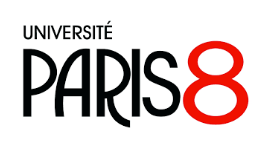17h00
zoom
Write to cocoa-info at services.cnrs.fr for zoom links.
Fabio Del Prete (CLLE) and Giuseppe Spolaore (University of Padua)
"Now", forcing and causality
We discuss data with “now” in sentence-initial position, optionally taking a “that”-clause argument (Carter & Altshuler 2017), including sentences about the future ("will" and futurates) and about the past. We show that the meaning conveyed by these sentences differs from the meaning of otherwise identical sentences in which “now” is a regular time adverb; their meaning, we argue, points to a kind of modal reading to ground which we propose a general notion of forcing (Spolaore & Del Prete 2019). The relation between forcing and causality will be discussed, along with its connections to discourse interpretation.
Bridget Copley (SFL)
A model is not the territory it represents: Causal models as relativized dynamic perspectives
Nadathur & Bar-Asher Siegal (2022) provide a causal model-based answer to the question of what constitutes progress toward a goal in the semantics of the English progressive. However, as they freely concede, their analysis does not immediately suggest a compositional treatment. I propose here that a major clue to compositionality is their observation that, in cases of intentional action, intentions are globally necessary conditions. This, I argue, tells us that a node representing intention is in fact introduced by the verb phrase into the causal model on which a sentence is evaluated. To cash out this idea, we need to treat the causal model of evaluation not as a detailed, global, timeless, objective representation of the causal structure of the relevant events in the world (the ``territory'' of the title), but rather, a small (generally two- or three-node) perspective of an individual at a time, which is treated as part of the Common Ground (Copley & Mari 2022) and which is updated dynamically as events unfold. Making this move means that Nadathur & Bar-Asher Siegal's mechanism can be seen as part of the process for evaluating whether the current detailed state of the world is a truth-maker for the small, relativized model of evaluation contributed compositionally by utterances.



